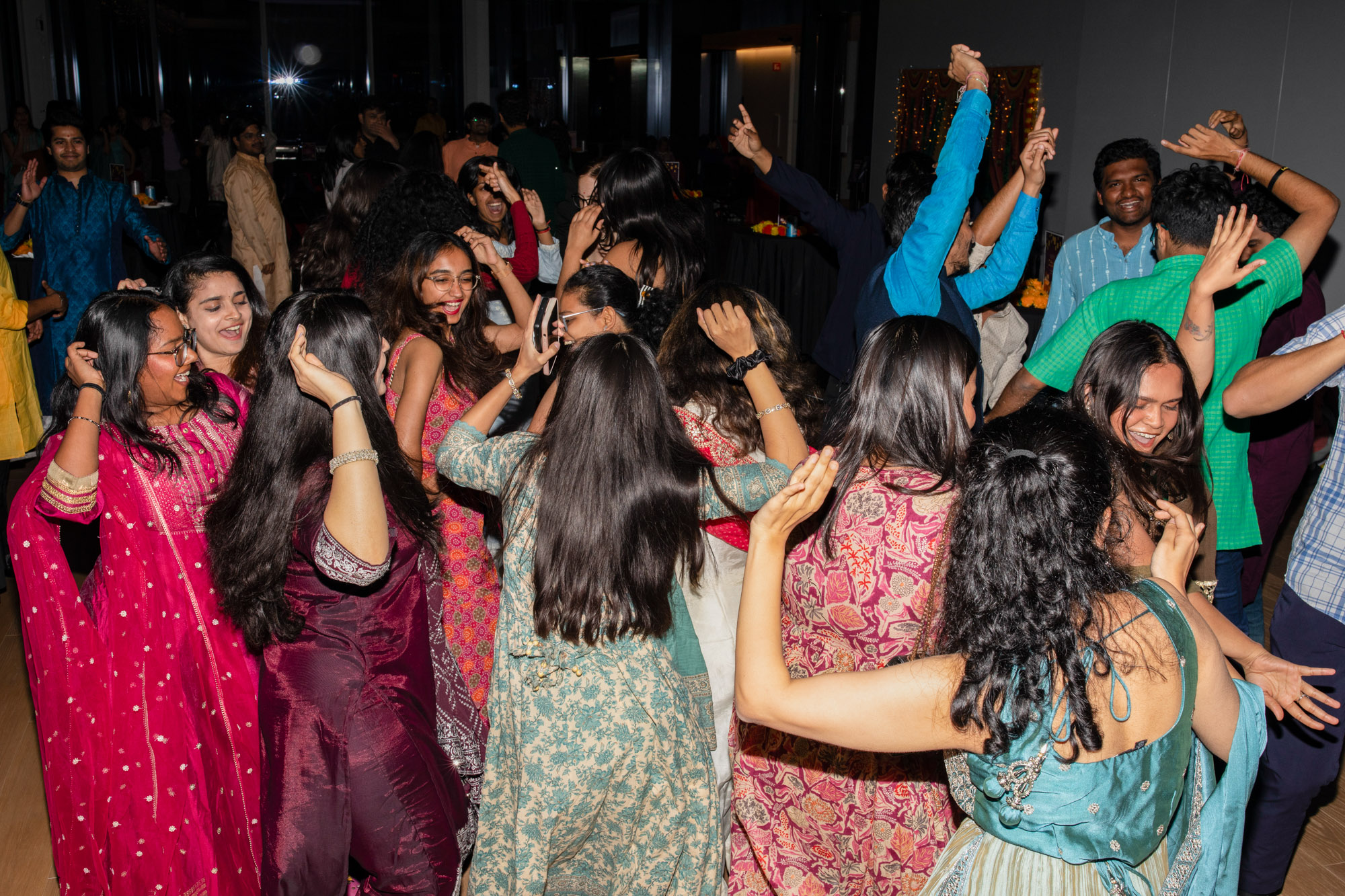Students clad in brightly colored Indian garments received bindis, red dots on their foreheads, as they entered the Boston University Center for Computing and Data Sciences to celebrate Diwali.

Community leaders and college campuses across Boston hosted Diwali events this past weekend to celebrate the holiday and promote cultural education.
Diwali, also known as Deepavali or the Hindu “Festival of Lights,” is a five-day celebration honoring the triumph of good over evil and is one of South Asia’s most widely celebrated holidays. This year, the most important day of the Hindu celebration of Diwali fell on Oct. 31, and the Sikh celebration fell on Nov. 1.
The Massachusetts State House hosted its Diwali celebration on Oct. 22. The celebration included speeches from both Massachusetts Senate President Karen Spilka and House Speaker Ron Mariano, along with the lighting of oil lamps called diyas and explanations of Diwali traditions.
Neela Gandhi, president of the United India Association of New England, attended the celebration and said it was “great to see” Diwali celebrated at the State House.
For many South Asian people residing in Boston, Diwali events typically consist of community gatherings meant to allow the community to experience their culture. Gandhi spoke about how the UIANE helped accomplish this.
“Our association was actually founded in 1984 to try and keep this culture alive and so that the children growing up in the country could know the meaning of Diwali,” Gandhi said.
On Friday, BU’s Center for Computing and Data Sciences hosted a Diwali celebration, which was free for all BU students.
The celebration was organized after Tanima Chatterjee, clinical assistant professor of computing and data sciences at BU, suggested it to the event-planning committee. Because Diwali is celebrated by many different cultures, Chatterjee said she wanted the event to foster inclusion across backgrounds.
“It’s not just about the culture,” Chatterjee said. “It’s also about how beautifully you can celebrate that particular event. The whole idea is to celebrate different cultures, eventually, so that we can help students feel a sense of belonging no matter where they come from.”
Attendees of the event enjoyed live dance performances, food and more activities. Students could also have their hands adorned with henna, a hair and body dye that symbolizes health and prosperity.
The event planning committee made an effort to inform the BU community of the different aspects of the holiday through signages posted around the event space that explained the significance behind different activities and decorations.
Maureen McCarthy, director of communications, events and programs at CDS, said the event “sold out for the waitlist,” and said communities at BU are “dedicated to not only creating an event like this but to learning” about the culture.
Some international students who usually celebrate Diwali with their families abroad spent the holiday at college with their friends.
“Instead of spending [it] with my family, I did get to spend it around people who also find joy and peace in the religion and in celebrating the day,” said Sharleen Sandhu, a sophomore from Hong Kong and vice president of the Sikh Student Association at BU.
To celebrate Diwali, Sandhu attended the Sikh temple with members of SABU. She said she realized the importance of everyone being “there to celebrate for the same reasons.”
Naomi Rajput is the founder and president of the Indian Cultural Association at Northeastern University, which organized a Diwali-inspired candlelight concert on Saturday. The event included activities related to mela, a popular Indian cultural fair.
Like Sandhu, Rajput shared a similar sentiment about the evolution of her meaning of Diwali.
“As I’ve grown personally more into my faith, I have explored different facets of Diwali and what it means from a Hinduism perspective and what it means culturally,” Rajput said. “Diwali means a time of celebration, a time of introspection and an excuse to hang out with my friends.”
Sandhu said celebrating Diwali in college has opened up a new meaning to the holiday for her.
“I’ve been having a lot more experiences in BU learning about my religion,” Sandhu said. “Diwali means a lot more to me than just being able to play with sparklers.”

















































































































